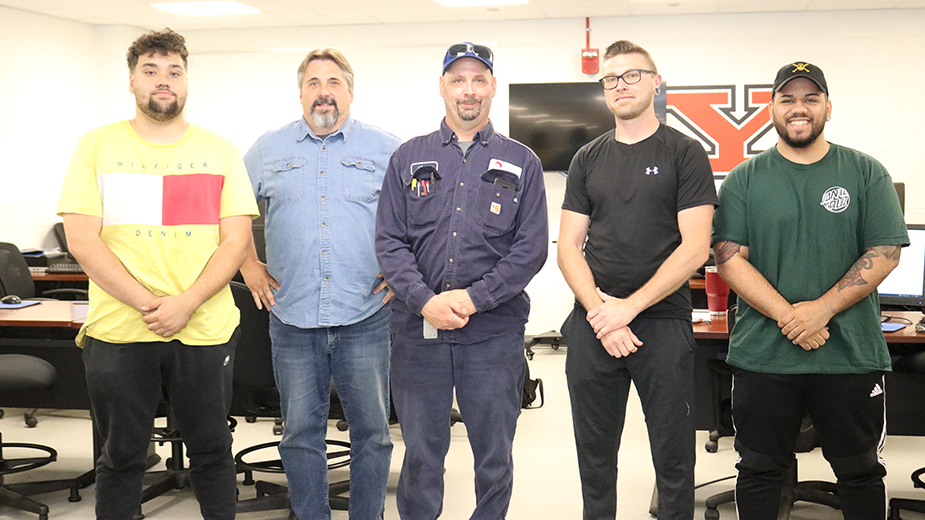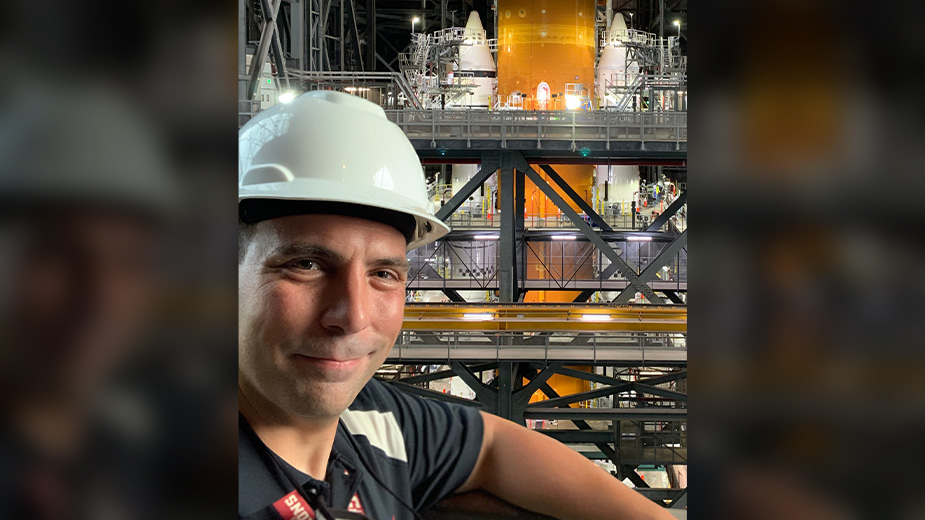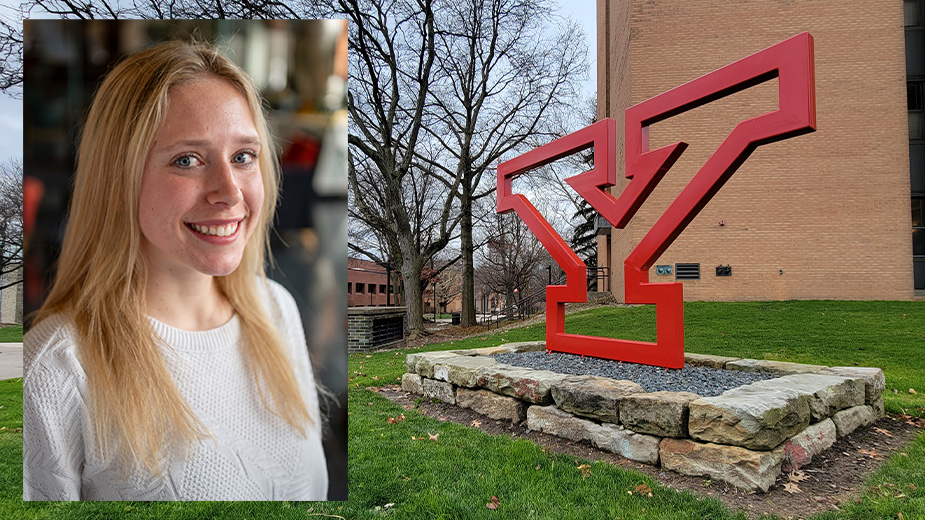Workers, Employers Benefit from Industrial Maintenance Training
YOUNGSTOWN, Ohio – Travis Welsh had been working at Compco in maintenance for three years when another position within the Columbiana company came open.
He applied – which meant a promotion – and was accepted. It came with conditions, though.
“I was accepted on the condition that I go back to school and go through an apprenticeship program,” Welsh says.
Compco, a member of the Mahoning Valley Manufacturers Coalition, is paying for the apprenticeship and has given Welsh someone to work with so he can get additional practice on the machines the company uses every day.
Welsh was able to get that training through the industrial maintenance introductory class at the Youngstown campus of Eastern Gateway Community College. Through the program, which partners with MVMC, Welsh said he learns new skills every day.
“The whole idea was to advance myself and put myself in a better position,” Welsh says. “We work with a lot of heavier equipment [at Compco]. So a little bit of the rigging goes a long way with me in learning how to hook some of that stuff up. It’s been intensive but it’s helped me at work.”
Welsh says he appreciates this opportunity and it’s heartening that Compco helps him gain more skills.
Pedro Santiago, another student in the industrial maintenance introductory class, said he, too, is pleased that his employer, Xaloy, is investing in his future as he makes the transition from a production position to maintenance. The Austintown company, which makes huge screws and barrels, wanted him to learn more maintenance skills and was willing to help with the cost of the class.
“I’ve actually used a lot of the stuff that I learned here at my job already and they’re very happy about it,” Santiago says. “It’s something new I wanted to try. I’ve always wanted to be in maintenance.”
Chris Shimko has been working at Clark-Dietrich in Vienna Township about five years, starting as a machine operator. He is taking the class to gain background knowledge for his most recent position in maintenance after the company asked him to get more formal training.
“It’s really helpful,” Shimko says. “A lot of things that you thought you knew, you get a little bit more knowledge and a lot of things are easier too.”
Shimko’s training is teaching him how to figure out solutions to maintenance problems.
Most students in the program are in similar situations. They already have positions at their companies. They just need more skills to move into maintenance or do their job better.
“The basis of the industrial maintenance program is most companies hire maintenance people within their company. They are people who have worked on the machines, know the flow and process of the plant and then they move into a maintenance role,” says Amelia Taggart, director of workforce at Eastern Gateway. “You’ll find some people are very mechanically inclined. Maybe they’re not skilled on the electrical portions. So you don’t have to take all of these courses. You can pick and choose which modules you take to upskill the employees.”
John Burr, one of the industrial maintenance instructors, says the introductory class includes basic machine operations, mechanical fixtures, mechanical components, rigging, blueprint reading and basic mathematics.
“We do mechanical componentry, putting nuts and bolts together,” Burr says. “The rigging part is all the different fasteners, all the different slings, ways that things can be hoisted and the different types of cranes and hoists. Signs that you use when you are working on larger cranes. Also, the blueprint reading of course gives them a better understanding of what they are looking at so they can do a better job.”
Eastern Gateway instructors who have experience in manufacturing teach the program. It is conducted at the Excellence Training Center on the campus of Youngstown State University.
Burr has many years of experience in machining and also serves as a machining instructor for Eastern Gateway.
Students taking the industrial maintenance introductory course can begin to earn their National Institute of Metalworking Skills (NIMS) credentials, which are recognized across the industry. Students learn new skills and information, followed by quizzes, tests and the final credentialing class.
“Hopefully they will have a better understanding of all of those things,” Burr says. “A lot of them are already employed. So these are things perhaps they have already heard about but they are learning new things about. I know many of the students didn’t have a full understanding of rigging until they took this class.”
Just completing this course is a steppingstone for some but Taggart points out the industrial maintenance program has eight modules. Companies can pick and choose what areas they want their employees to learn.
After the introductory course, Taggart says students can take more advanced specialty courses in areas such as mechanical, hydraulics, pneumatics, electrical, and electrical control systems.
Welsh recently completed the introductory course. He plans to complete the apprenticeship program. That will require him to take all the additional modules and the possibility of two or more years of training.
The president of Compco, Rick Fryda, knows the importance of strong apprenticeship programs for businesses like his and its employees.
Fryda was himself a tool and die apprentice at a time when it was more complicated to find a place approved by the state to complete the apprenticeship. Years ago, Fryda taught tool and die as part of an apprentice program at what is now the Mahoning County Career and Technical Center.
“It’s important to have this curriculum and training that is available for young adults and it also helps business,” Fryda says.
Welsh is already applying the skills he has learned through Eastern Gateway, he says. Fryda sees Welsh as an ambitious young man and part of the younger generation that is driven to better themselves.
Compco management monitors the Eastern Gateway program that Welsh attends. His supervisors regularly sit down with him to review what he is learning and they make certain he is getting what he needs.
Fryda likes what he sees from the Eastern Gateway program because he is concerned that most high schools no longer offer shop or carpentry classes.
“I think that it’s extremely important to offer that curriculum,” Fryda says. “It fills a void.”
Pictured at top: The introduction to industrial maintenance class includes Pedro Santiago, instructor John Burr, Chris Shinko, Travis Walsh and Zacary Castro.
Copyright 2024 The Business Journal, Youngstown, Ohio.



